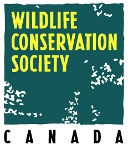Northern Appalachian/Acadian Ecoregion
Conservation Atlas
- 2C1Forest Atlas |
- Galleries |
- Resilience to Climate Change and Landscape Permeability
Resilience to Climate Change and Landscape Permeability
Nov 25, 2013
(Last modified Jan 9, 2014)
Created by
2C1Forest

About
Resilience to Climate Change and Landscape Permeability by The Nature Conservancy.
The TNC resilience data includes resilience scores, resilience by geophysical setting, high resilience focal areas, network of resilient sites, securement of focal areas and more.
The TNC landscape permeability data includes a regional flow analysis using CircuitScape and a local connectedness analyses using the Resistant Kernel technique.
This gallery is visible to everyone
Gallery contains
- 1 Folders
- 8 Datasets
- 3 Maps
- Usage
- Bookmarked by 1 Member , 1 Group
The Nature Conservancy
About the Gallery Author
2C1Forest
with Two Countries, One Forest
A Canadian-U.S. collaborative of conservation organizations, researchers, foundations and conservation-minded individuals. Our international community is focused on the protection, conservation and restoration of forests and natural heritage from New York to Nova Scotia, across the Northern...



